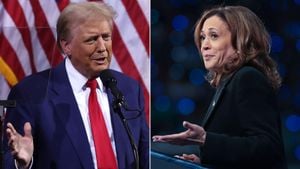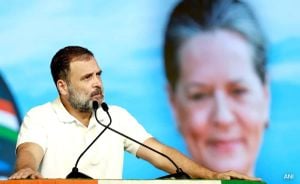Japan's recent election results have sent shockwaves through its financial markets, as the political climate appears to shift beneath the feet of investors and consumers alike. The elections, marked by disappointing results for Prime Minister Fumio Kishida and his coalition, have kicked off significant market reactions, characterized by the drop of the yen and a corresponding rally of Japanese stocks.
Held on October 27, 2024, the general election was widely anticipated to result in losses for the ruling coalition, but the extent of the backlash has surprised many. The coalition, led by Kishida’s Liberal Democratic Party (LDP), reportedly faced backlash due to rising living costs and economic challenges, culminating in key defeats across various districts. This shift raises serious questions about Kishida's leadership and the future of his economic policies, particularly as Japan has grappled with relentless inflation and various social issues.
One of the most immediate repercussions of the election has been the performance of the Japanese yen, which has weakened significantly, trading at levels not seen since early 2024. Analysts explain this depreciation stems from concerns over the LDP's weakened mandate, raising fears about the stability needed for coherent economic policies. On the other hand, the market has reacted rather positively to this political upheaval; many investors are expressing optimism, hoping for potential reforms or changes and thereby responding with increased buying pressure on stocks, particularly those classified under the Nikkei 225 index.
Market analysts are drawing connections between the election's outcome and potential shifts within the Bank of Japan (BoJ) policy framework. Historically, low interest rates have been the norm under the current regime, but some experts suggest this latest election result could complicate the BoJ’s future decisions. A fluctuated interest rate policy aligned with global trends, including rising rates internationally, might become necessary for Japan to stabilize its currency and renew investor confidence.
Economic observers are keeping their fingers on the pulse, as BoJ Governor Kazuo Ueda faces increasing scrutiny. With the general sentiment leaning toward maintaining accommodative policies, the pressure mounts on the central bank not only to sustain economic growth but to manage yen depreciation effectively. Any substantial rise in interest rates could lead to adverse effects, including hampering consumer spending and causing employment shifts, all the more precarious against the backdrop of the electoral outcomes.
Interestingly, the broader Asian markets have also shown ripple effects from Japan's election. The Nikkei index witnessed impressive upward momentum following the election, signaling eagerness from domestic investors likely betting on Kishida’s potential pivot toward more progressive reforms. Nonetheless, analysts advise caution, indicating fluctuations may persist as the dust settles on these newfound political realities.
This election also reflects changing dynamics within Japanese society. Nationally, there is mounting pressure for the government to address pressing issues such as economic inequality, climate change, and demographic challenges exemplified by Japan's aging population. The public's decision at the polls sends clear signals to the government—meaningful policy changes are demanded, and they need to occur sooner rather than later.
Public sentiment plays a pivotal role as well. Kishida’s reluctance to implement more ambitious economic reforms has drawn criticism from various political factions, leading several seats to swing toward more progressive candidates advocating for comprehensive social and economic reforms. The broader political atmosphere holds the potential for realignment of power dynamics within the LDP, paint-in pictures of internal strife and increasing factionalism.
Compounding this atmosphere is the concern surrounding global markets, which are still at the mercy of geopolitical tensions. The ripple effects of Japan’s election can be felt beyond its borders, especially as investors globally are wary of instability. The elections and their outcomes come at a time when Asian economies grapple with supply chain disruptions, rising energy prices, and currency fluctuations, all signals pointing to the need for stable political governance.
Market analysts continue to dissect the ramifications of the elections, weighing the potential outcomes of either the Kishida coalition attempting to regain lost ground or the rise of alternative political forces seeking to steer Japan’s economic narrative. All eyes will be on Tokyo as the situation progresses, with market participants cautiously optimistic for what lies ahead.
Clearly, the recent election results have not only echoed through dinner-table discussions across Japan but have also ignited vibrant discussions during business meetings and boardrooms. Stakeholders across various sectors are finding themselves reevaluated prospects, determining their next course of action, and shaping strategies accordingly.
Japan's economic future hangs precariously on the balance of its leadership dynamics post-election. While stock markets have rallied and the yen has tumbled, traders remain alert for signs of substantial policy shifts and economic realignment. The government, now under increased scrutiny, faces the unenviable task of restoring public trust and stabilizing the economy amid persistent uncertainty.



